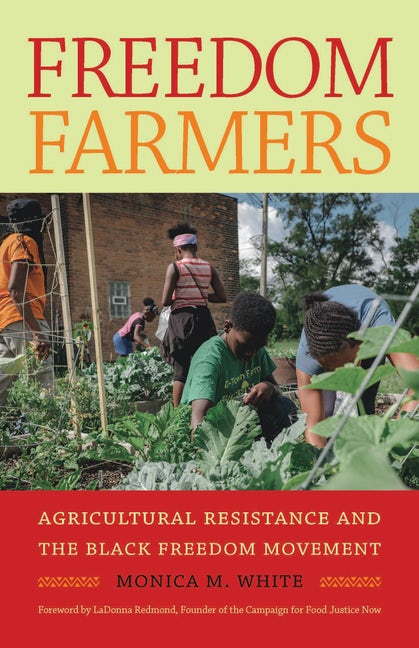Freedom Farmers: Agricultural Resistance and the Black Freedom Movement

Dr. Monica M. White teaches courses in environmental justice, urban agriculture, and community food systems at the University of Wisconsin-Madison. She is the first African American woman to earn tenure in both the College of Agricultural Life Sciences and the Gaylord Nelson Institute for Environmental Studies. Her research investigates Black, Latinx and Indigenous grassroots organizations engaged in the development of sustainable, community food systems as a strategy to respond to issues of hunger and food inaccessibility.
Historical narratives have tended to focus more on Black struggle (protests, marches, Freedom Riders, etc.), rather than on a legacy of horticultural knowledge, collective successes and community building, successful challenges to white supremacy through food production and political self-determination. White has provided a history of Black farming and cooperatives in this book that perhaps transforms our understanding of the history of Black communities and their relationship to the land.
Freedom Farmers illustrates how Black farmers, activists, and academics have used agriculture as a means of resistance in their struggle for freedom in the United States. White explores the ways in which prominent figures like George Washington Carver, W.E.B. DeBoise, and Fannie Lou Hamer resisted white supremacist systems in the South by educating tenant farmers, forming Black farming cooperatives, and increasing political participation in the Black community as a result. White goes on to connect these early movements to modern-day agricultural resistance movements in Detroit, like the Detroit Black Community Food Security Network (DBCFSN) – an explicitly antiracist, anti-capitalist, self-determined, self-reliance initiative.
You can find more information about Freedom Farmers, including book club discussion questions, on our website. To check this book out from Tucson CSA’s Food Literature Lending Library, please send us a request.